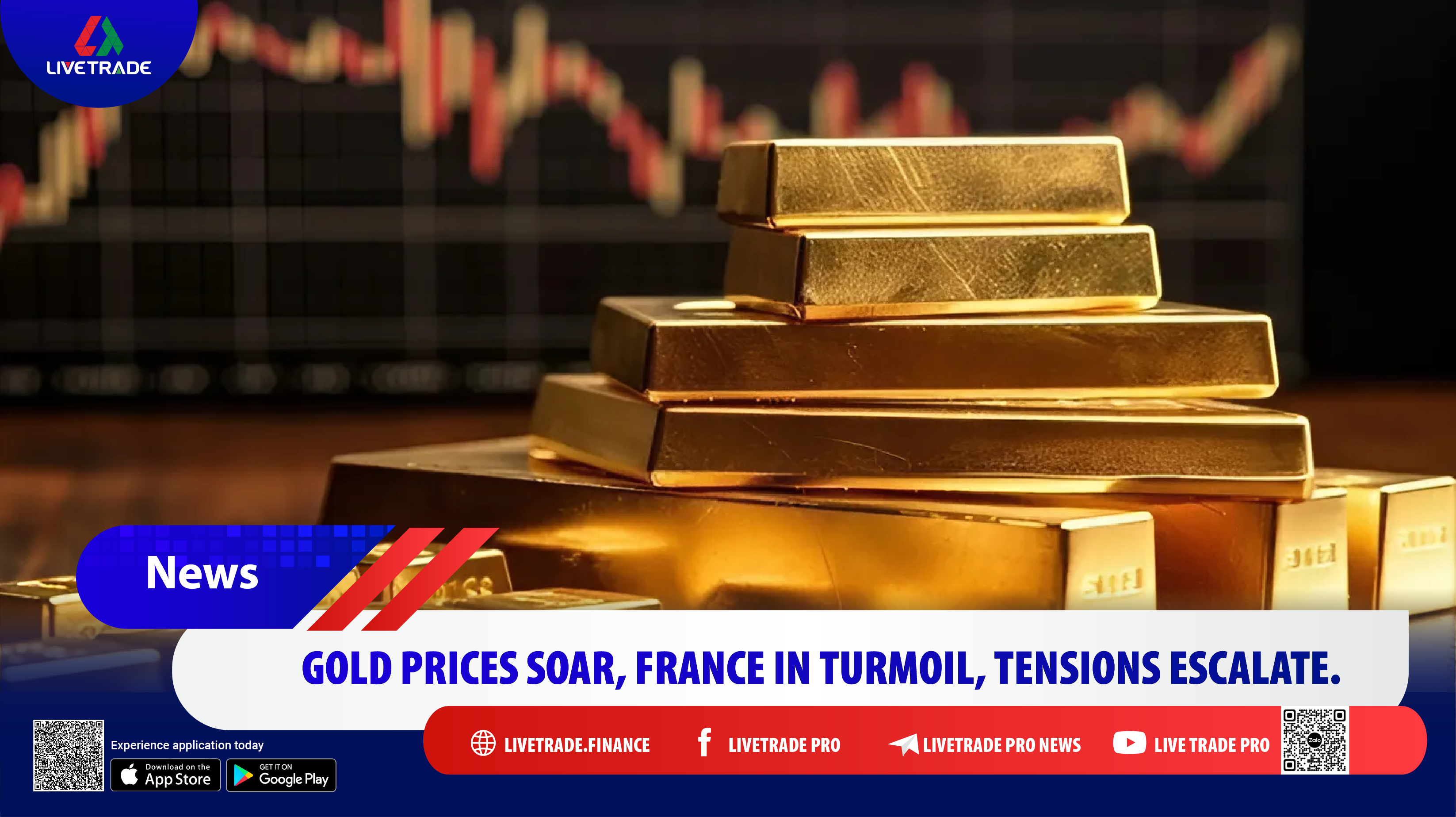Gold Prices and Supporting Factors
Gold continues to hold its appeal due to factors such as rising inflation expectations, tax reduction policies of former President Trump, and the possibility of central banks in emerging nations increasing their gold reserves. However, gold prices are under pressure from the strengthening USD. Currently, spot gold (XAU/USD) is at $2,642 per ounce, with a slight recovery during the day, but still down 0.38% from the start of the week. Ongoing monitoring of global economic and political factors will determine the future trend of gold prices.
Iran-Saudi Arabia Relations
According to the Islamic Republic News Agency (IRNA), the Iranian Ambassador to Saudi Arabia met with Saudi Deputy Foreign Minister Al-Waleed to discuss enhancing bilateral relations. This is a positive sign, indicating that relations between the two countries may improve after a period of tension.
Political Crisis in France
France is facing significant political turmoil as far-left and far-right parties have called for a no-confidence vote against Prime Minister Barnier. If successful, this would be the first French government to be ousted by a no-confidence vote since 1962. The primary reason is disagreement over the budget bill, with Barnier proposing €60 billion in spending cuts and tax increases to control the budget deficit. This instability has heavily impacted the French financial market, with bond yields surging, the euro being sold off, and the CAC 40 index falling nearly 10% since June.
Fed Interest Rate Cut Probability
According to CME FedWatch, the probability that the U.S. Federal Reserve will cut interest rates by 25 basis points in December is 74.5%. By next January, the probability of the Fed keeping the current rate is 20.6%, while the likelihood of a 50 basis points rate cut is 14.3%. Fed decisions will significantly impact the financial markets and could be a key driver of changes in other sectors.
Bitcoin Volatility
Bitcoin continues to experience significant fluctuations, currently trading at $96,088.78 per BTC with a market cap of $1.90165 trillion. In the past 24 hours, Bitcoin’s price has dropped 1.55%, though trading volume remains at $71.11 billion. Bitcoin remains a popular investment asset, despite its strong volatility and instability.
Trump’s Statement on Gaza
On December 2, U.S. President-elect Donald Trump declared that if hostages in the Gaza Strip are not released by January 20, 2025, Hamas will pay a “heavy price.” Trump emphasized that those “responsible” will be “dealt with more harshly than ever in U.S. history.” While this statement does not directly affect economic issues, it has increased international tensions and may influence U.S. policies in the region.
Germany Increases Aid to Ukraine
German Chancellor Scholz made a surprise visit to Ukraine on December 2, during which Germany pledged an additional €650 million in aid to Ukraine, including Patriot air defense systems, IRIS-T, and Cheetah tanks. To date, Germany’s total military aid to Ukraine has reached nearly €28 billion. Despite this strong commitment, Chancellor Scholz reaffirmed that Germany will not provide “Taurus” missiles to Ukraine. This support will continue to help Ukraine cope with the conflict with Russia.
U.S. Restricts China’s Military AI
The Biden administration has introduced a new strategy to curb the development of artificial intelligence (AI) in China’s military. This measure is part of broader efforts to tighten restrictions on the export of advanced semiconductor technology, aiming to slow down China’s research and development of defense-related AI.
Conclusion
December 3 has seen numerous significant events affecting global financial and political markets. Today’s latest economic news reflects fluctuations in gold prices, Fed decisions, political instability in France, and international tensions such as the Gaza issue and China’s technology development. All these factors will continue to significantly influence the global economy in the coming period.
Invest anytime, anywhere on any type of asset with the most stable and reliable pricing in the industry


